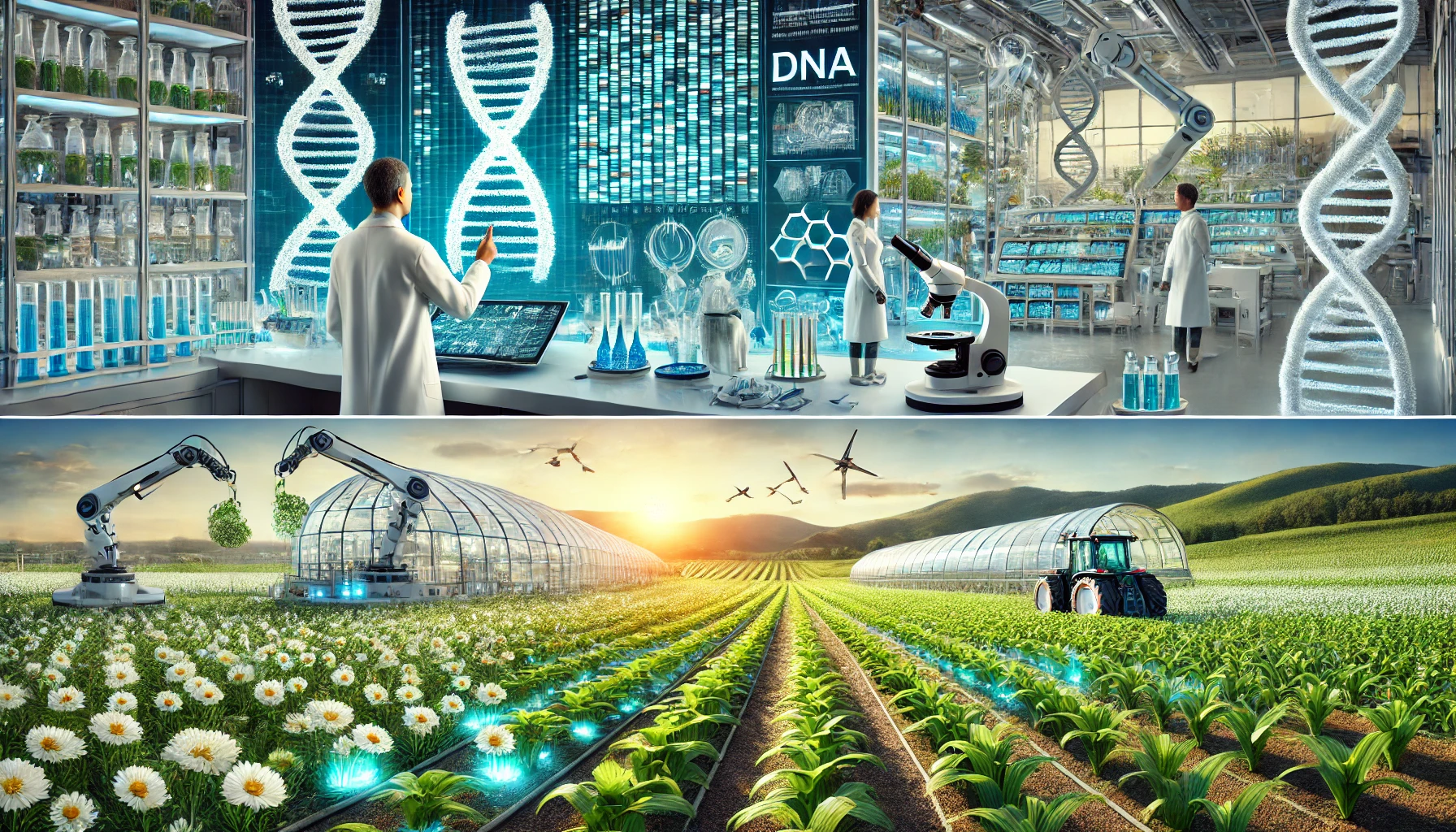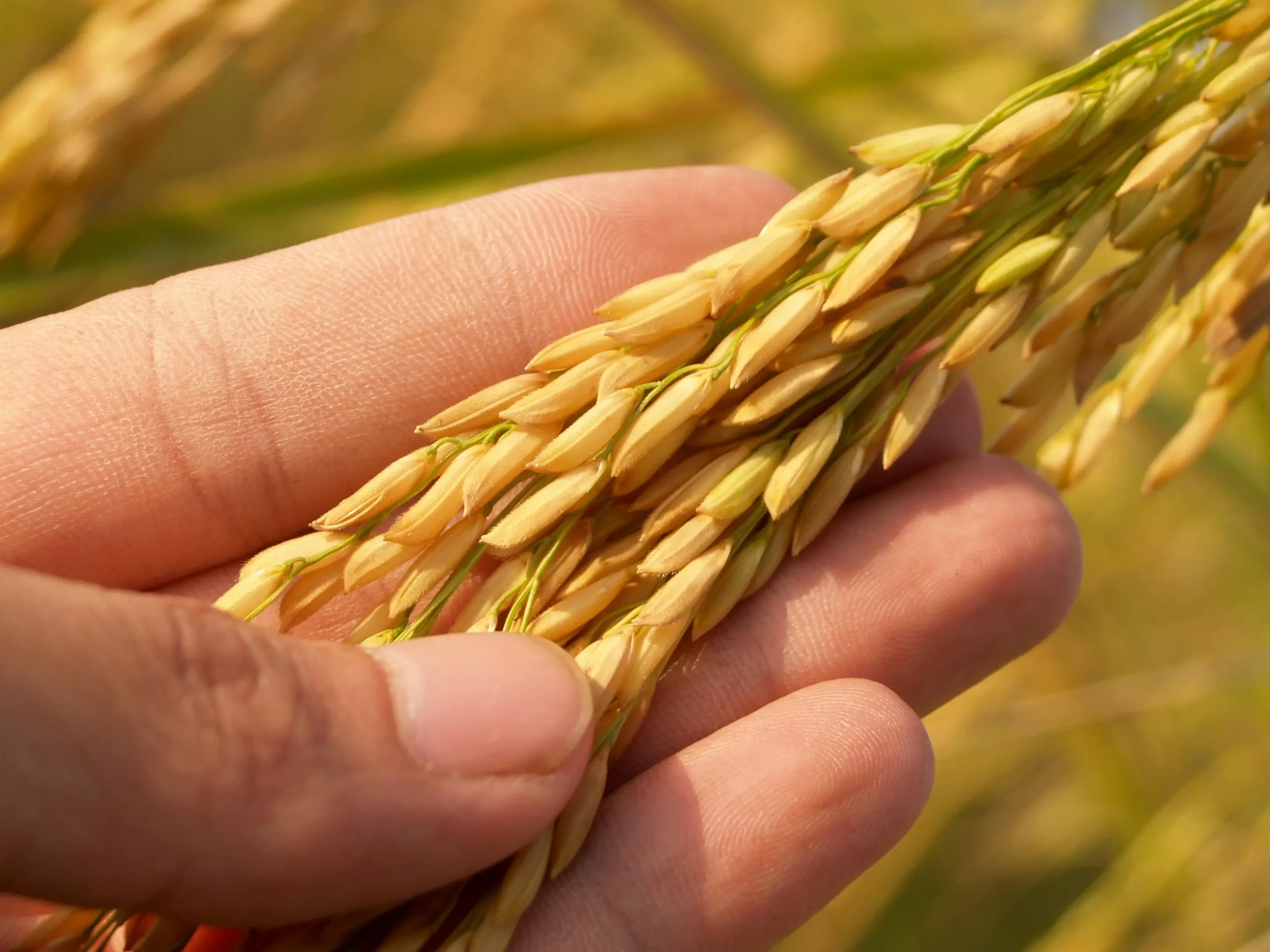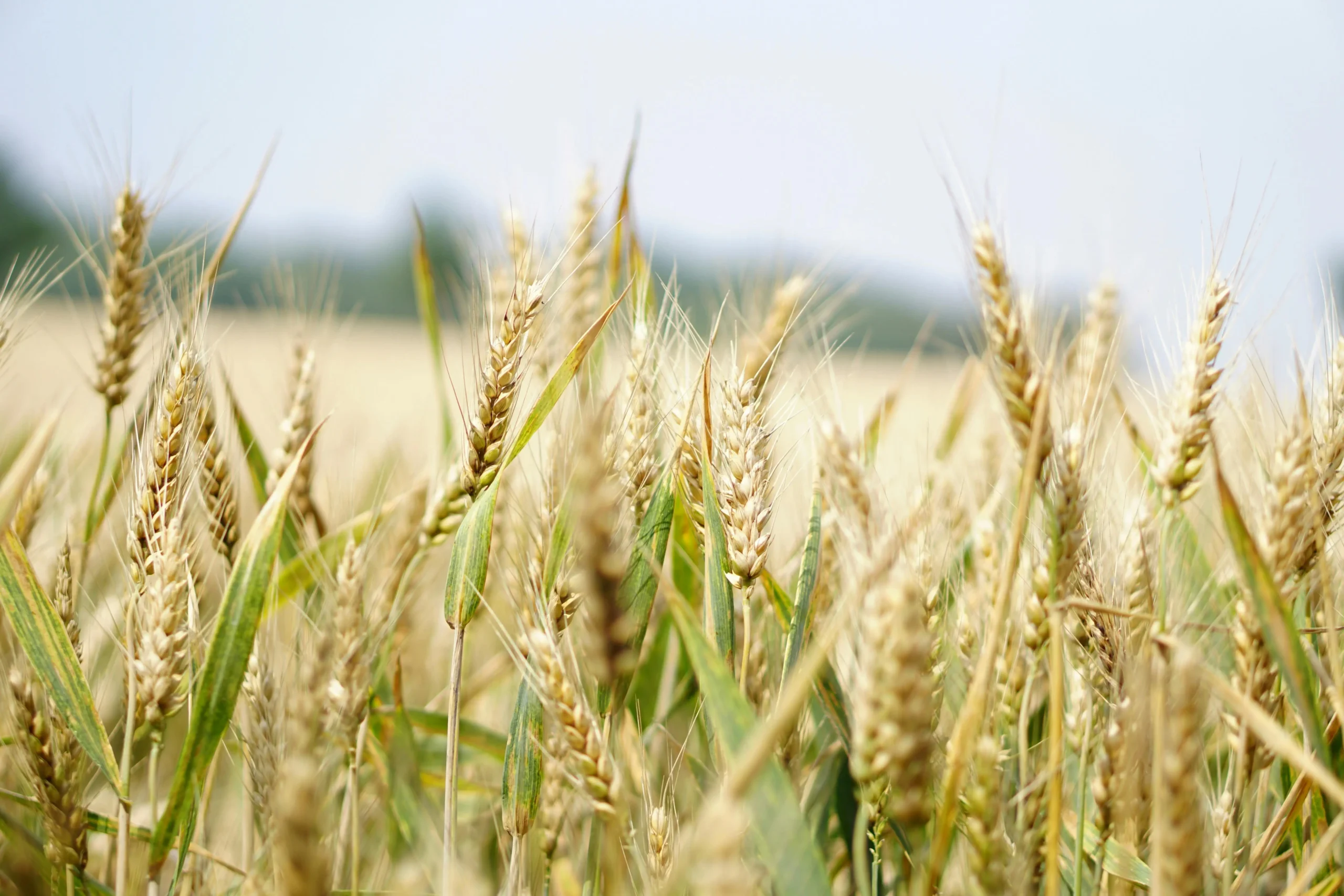Agriculture is the backbone of economies worldwide, and it’s constantly evolving with new trends, technologies, and ideas. As we approach 2025, the landscape of agriculture continues to change at a rapid pace. So, if you’re preparing to give a speech on agriculture, finding the right agriculture speech topics can set you apart. In this article, we’ll look at some innovative agriculture speech topics that are not only relevant but also forward-thinking. These topics will captivate your audience and inspire thought-provoking discussions, as we consider what the future of farming and agriculture could look like.
Agriculture Speech Topics for 2025
The world of agriculture is evolving faster than ever, with new innovations and techniques shaping the way food is produced, distributed, and consumed. As the agricultural industry faces the challenges of a growing global population, changing climates, and limited resources, the need for forward-thinking solutions is more critical than ever. Whether it’s exploring how AI and precision farming are enhancing efficiency or how sustainable practices are paving the way for a healthier planet, there are many exciting topics that address these key issues. Below are some innovative agriculture speech topics that are poised to capture the audience’s attention and spark conversation.

The Role of AI in Agriculture: Shaping the Future of Farming
Artificial intelligence (AI) is transforming every industry, and agriculture is no exception. Imagine a farm where robots take care of everything from planting to harvesting. Sounds like something out of a science fiction novel, right? Well, it’s closer to reality than you might think. AI can help farmers make more informed decisions, improve crop yields, and even reduce waste. There are already AI-driven systems that predict weather patterns, monitor soil health, and automate farm machinery. These advancements are opening up new opportunities for agriculture speech topics that explore the intersection of technology and farming.
- AI-powered drones for crop monitoring.
- Precision farming using data analytics.
Sustainable Agriculture Practices: A Must for the Future
With the world’s population continuing to grow, sustainability is becoming increasingly important in agriculture. The demand for food is rising, but the pressure on the environment is also growing. Sustainable farming practices help reduce negative environmental impacts, conserve resources, and ensure that farming can continue for generations to come. Agriculture speech topics focused on sustainability can include topics like soil conservation, water management, and organic farming techniques. It’s an area that resonates with a wide audience, especially those concerned about the future of the planet.
- Eco-friendly farming methods.
- The importance of crop rotation and biodiversity.
Vertical Farming: A Solution to Space Constraints
Vertical farming is one of the most innovative agricultural practices emerging in urban areas. Instead of traditional farming, which requires vast amounts of land, vertical farming allows for the cultivation of crops in stacked layers, often inside buildings or on rooftops. This practice maximizes the use of space and reduces transportation costs by growing food closer to where it will be consumed. As cities expand and arable land becomes more scarce, vertical farming could play a crucial role in meeting the growing demand for food.
- Benefits of vertical farming in urban areas.
- Integration of hydroponics and aeroponics in vertical farms.

Genetic Engineering and GMOs: Transforming the Agriculture Industry
Genetic engineering has been a hot topic in agriculture for years. Genetically modified organisms (GMOs) are crops that have been altered at the genetic level to enhance desirable traits such as resistance to pests, tolerance to extreme weather, or higher nutritional content. However, genetic modification is a controversial subject, with many questioning its safety and long-term impact on the environment. Agriculture speech topics related to GMOs can include the ethical debates surrounding genetic engineering, the science behind GMOs, and the potential benefits or risks of their widespread use.
- The debate over GMOs in food production.
- Benefits of genetically modified crops in combating hunger.
Agriculture and Climate Change: Adapting to New Realities
Climate change is one of the biggest challenges faced by agriculture today. Rising temperatures, unpredictable rainfall, and extreme weather events are all factors that affect crop yields and farm productivity. Agriculture speech topics focusing on how farmers can adapt to these changes can be both informative and urgent. Topics could explore how crops can be genetically modified to withstand harsh conditions, how farmers are adapting their techniques, and how new technologies can help mitigate the effects of climate change on agriculture.
- Developing drought-resistant crops.
- The role of technology in climate change adaptation.
The Importance of Precision Agriculture in Modern Farming
Precision agriculture involves using technology, such as GPS, drones, and sensors, to monitor and manage crops more efficiently. By collecting data on soil health, crop performance, and weather conditions, farmers can make more informed decisions about when to plant, irrigate, and harvest. This approach not only increases crop yields but also reduces the amount of water, fertilizers, and pesticides used, which can have environmental benefits. Agriculture speech topics on precision farming can delve into the technological tools being used, the benefits of data-driven farming, and how this trend is changing traditional farming practices.
- Tools and technologies used in precision agriculture.
- How precision agriculture helps reduce waste and increase efficiency.
Agricultural Policy and Its Impact on Farmers in 2025
Agricultural policies play a significant role in shaping the future of farming. These policies determine everything from subsidies and trade agreements to environmental regulations and research funding. As we approach 2025, agriculture speech topics related to policy changes and their impact on farmers will be highly relevant. You could discuss the shifting landscape of agricultural subsidies, the need for policies that support sustainability, and how international trade agreements are affecting global food systems.
- The role of government support in sustainable farming.
- Policy changes and their effect on agricultural exports.
Food Security and Agriculture: Ensuring a Stable Future
Food security is a critical issue in the coming years, especially with the world’s population increasing. Agriculture speech topics focused on food security could address how we can ensure that everyone has access to enough food, even in the face of climate change and resource depletion. You could explore how advances in agriculture, such as the use of technology, genetic engineering, and sustainable practices, can help create a more secure food supply for all. This is a topic that resonates deeply with people concerned about global hunger and the future of food.
- Addressing food security through sustainable farming.
- The role of technology in ensuring food availability.
Agriculture Speech Topics: Making a Difference in the Future
The future of agriculture is full of possibilities. With new technologies, sustainable practices, and innovative approaches, the industry is evolving to meet the challenges of feeding a growing population. As we approach 2025, the agriculture industry will continue to be a source of innovation and change. By choosing agriculture speech topics that are both relevant and forward-thinking, you can inspire your audience to take part in the conversation and contribute to shaping the future of farming.
- The importance of education and awareness in agriculture.
- How individuals can support sustainable farming practices.
Samples of Agriculture Speeches
These speeches provide a thorough exploration of two agriculture-related topics—AI in farming and sustainable agriculture practices—with each focusing on the importance of these advancements for the future of agriculture.
Speech 1: The Role of AI in Agriculture: Shaping the Future of Farming
Good evening, everyone. Today, we stand at the threshold of a new era in agriculture, one that is being shaped by artificial intelligence, or AI. AI is no longer a distant concept from science fiction; it is a transformative tool that is changing the way we farm. From optimizing crop yields to predicting weather patterns, AI is revolutionizing agriculture in ways we never thought possible. Let’s take a closer look at how AI is shaping the future of farming.
Agriculture is inherently a data-intensive industry. Farmers need to monitor numerous variables like soil health, weather conditions, crop growth, and pest control to ensure optimal yields. Traditionally, this has been a laborious process, relying on experience and observation. But AI allows farmers to gather and process vast amounts of data quickly and efficiently, leading to more informed decision-making.
For instance, AI-powered drones are now being used to monitor crops from above. These drones can capture real-time data about crop health, detect disease or pest infestations, and even determine the ideal time for harvesting. Using AI algorithms, this data is analyzed to provide actionable insights, allowing farmers to take precise action. This not only increases productivity but also reduces the need for pesticides and fertilizers, which is better for the environment.
Additionally, AI can be used to predict weather patterns more accurately. Farmers can plan their planting and harvesting schedules based on these predictions, minimizing the risk of crop failure due to unexpected weather conditions. For example, AI systems are being developed that can analyze satellite imagery and weather data to predict droughts, storms, or even frost, providing farmers with a heads-up before these weather events occur. This early warning system can help farmers take preventive measures, saving crops and reducing financial losses.
One of the most exciting applications of AI in agriculture is precision farming. With the use of AI, farmers can monitor and manage their fields at a micro-level. Sensors embedded in the soil collect data on factors like moisture levels, temperature, and nutrient content. This data is then analyzed by AI systems, which provide farmers with real-time recommendations on how much water, fertilizer, or pesticide to apply. This leads to less waste, more efficient resource use, and higher crop yields. Precision farming also helps reduce the environmental footprint of farming, which is crucial as the world grapples with climate change and resource scarcity.
However, like all technological advancements, AI in agriculture comes with its challenges. One concern is the cost of implementing AI-driven systems, which may be prohibitive for small-scale farmers. Additionally, there are concerns about the loss of jobs as automation takes over certain tasks. While AI can undoubtedly make farming more efficient, it is important that we also consider its societal and economic implications, particularly in rural communities.
In conclusion, AI is already making a significant impact on agriculture, and as we move into 2025, its role will only continue to expand. From improving crop yields to reducing environmental impact, AI has the potential to revolutionize farming. By embracing these technological advancements, we can create a more sustainable, efficient, and profitable agricultural sector. The future of farming is smart, and it’s happening now.
Speech 2: Sustainable Agriculture Practices: A Must for the Future
Ladies and gentlemen, thank you for being here today. As we face the challenges of feeding a growing global population, the importance of sustainable agriculture has never been more urgent. Our agricultural systems have long relied on practices that often degrade the very resources we depend on. But we are now at a crossroads, where adopting sustainable practices can help ensure the future of farming while protecting our planet. Today, I want to share with you why sustainable agriculture practices are not just important—they are a necessity for the future.
Sustainability in agriculture means producing food, fiber, and other materials in a way that maintains the health and productivity of the land, while also minimizing negative impacts on the environment. This involves thinking beyond simply increasing crop yields and considering the long-term effects of farming practices on our ecosystems. The traditional approach to agriculture has often prioritized short-term gains, such as maximizing production, without considering the impact on soil health, water resources, and biodiversity. However, this unsustainable model is no longer viable, especially in the face of climate change.
One of the most important aspects of sustainable agriculture is soil conservation. Soil is the foundation of our food system, yet it is being eroded at alarming rates due to poor farming practices. Over-tilling, monocropping, and the excessive use of chemical fertilizers can degrade soil quality, leading to reduced fertility and increased vulnerability to erosion. Sustainable farming practices, on the other hand, prioritize soil health through crop rotation, cover cropping, and reduced tillage. These methods help replenish nutrients in the soil, prevent erosion, and improve water retention, which is crucial in areas prone to drought.
Another key element of sustainable agriculture is water management. Agriculture is the largest consumer of water worldwide, and as climate change exacerbates water scarcity in many regions, it is crucial that we adopt more efficient water use practices. Drip irrigation, for example, delivers water directly to the roots of plants, minimizing evaporation and runoff. By using this method, farmers can drastically reduce water waste while ensuring that crops receive the necessary hydration to thrive. Additionally, rainwater harvesting techniques can be used to collect and store water, making farming less reliant on unpredictable water sources.
Sustainable farming also incorporates biodiversity. By planting a variety of crops and integrating livestock with crops, farmers can create more resilient ecosystems. Crop diversity reduces the risk of pest and disease outbreaks, and it helps ensure that the land is not depleted of any one nutrient. Agroforestry, the practice of planting trees alongside crops, is another great example of how biodiversity can be incorporated into farming. Trees can provide shade, reduce soil erosion, and improve carbon sequestration, making agroforestry a win-win for both the environment and farmers.
In addition to environmental benefits, sustainable agriculture practices offer economic advantages. While the initial costs of transitioning to sustainable methods can be high, in the long run, farmers can save money on input costs such as water, fertilizers, and pesticides. Moreover, sustainable farming practices often lead to healthier and more diverse crops, which can increase marketability and consumer demand. In many cases, farmers who adopt sustainable practices also report higher yields due to improved soil health and water efficiency.
As we move into the future, it is clear that sustainable agriculture must become the norm, not the exception. With global challenges like climate change and resource depletion threatening our food systems, it is crucial that we make the shift toward farming that protects and nurtures the environment. By adopting sustainable practices, we can ensure a food-secure future for generations to come. Let us all recognize that the health of our planet is directly tied to the health of our agricultural systems, and it is our responsibility to protect both.

Final Thoughts: The Path Forward for Agriculture
As we look to the future of agriculture, it’s clear that both technological innovation and sustainability must go hand in hand to ensure the longevity of our food systems. From AI-powered tools that optimize farming processes to sustainable practices that conserve our precious resources, the future holds immense potential for growth and improvement. The role of AI in agriculture can help maximize efficiency, while sustainable farming practices can ensure that we don’t compromise the health of our planet in the process.
By embracing these innovative solutions and adapting to changing global conditions, we have the opportunity to create a more sustainable, efficient, and resilient agricultural sector. As we move forward, it’s important that we continue to explore new ideas, invest in technology, and promote practices that ensure our farming systems are both productive and environmentally responsible. The future of agriculture is bright, and by taking action now, we can shape a food-secure world for generations to come.




